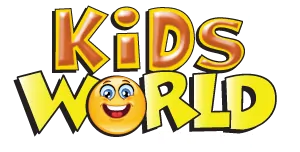Learn English » English Literature » Poem 'The Young Ones' by Elizabeth Jennings
The Young Ones
They slip on to the bus, hair piled up high.
New styles each month, it seems to me. I look,
Not wanting to be seen, casting an eye
Above the unread pages of a book.
They are fifteen or so.
When I was thus,
I huddled in school coats, my satchel hung
Lop-sided on my shoulder.
Without fuss
These enter adolescence; being young
Seems good to them, a state we cannot reach,
No talk of ‘awkward ages’ now.
I see
How childish gazes staring out of each
Unfinished face prove me incredibly
Old-fashioned.
Yet at least I have the chance
To size up several stages – young yet old,
Doing the twist, mocking an ‘old-time’ dance:
So many ways to be unsure or bold.
Analysis
The poet writes about young people, comparing their life with her own, and musing about the advantages that age has given her.
Summary
The school children “slip” into the bus, an action that they have perfected through practice. The poet is observing them without seeming to do so. She is looking above a book she is pretending to read. The pages are “unread”. Looking at the youngsters, the poet reflects on herself at their age. She had “huddled in school coats”, with her “satchel” handing “Lop-sided on my shoulder”. The youngsters that the poet is observing seem to enter their adolescence without much fuss, or problems. Traditionally the pre-puberty age is supposed to be “awkward”, but the poet does not think that these children have any such issues. However, the young and inexperienced eyes on the “unfinished”, or in other words, still developing face, reminds her how old-fashioned she herself is. However, the poet has the advantage of being able to understand several stages of life – both young and old. She feels that she is at once young and old. She can make fun of the “old time dance” of young people getting old, because she feels that in her case, the biological process has not taken over the inner, spiritual process of aging. She is at the same time young and old, both “unsure” and “bold”.
Language and imagery
This is a pretty straightforward poem with irregular rhyme. The images of “hair piled up high”, “childish gazes”, and “unfinished face” convey the image of childhood and innocence aptly. The poet brings out the difference between being a child in her times and now: in the modern age, there is high fashion sense right from childhood, and the transition from childhood to adolescence is not ‘awkward’ as it was at the time of the poet’s childhood. The poet feels “Old-fashioned”, but the twist in the poem comes when she states that she has the advantage of being both young and old, having seen both, and has the knowledge that there are more than one way of being “unsure or bold”. In other words, the lack of surety of youth and the boldness of old age are experienced in a multitude of ways.
Was this article useful? What should we do to improve your experience? Share your valued feedback and suggestions!
Help us to serve you better. Donate Now!

